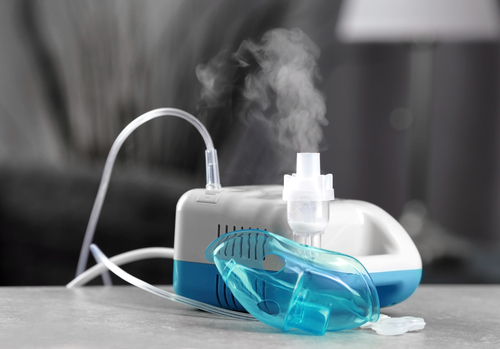Phase 2 clinical trial data demonstrated that Patara Pharma‘s investigative anti-inflammatory drug PA101 has the potential to significantly reduce chronic coughing in patients with idiopathic pulmonary fibrosis (IPF).
This finding was reported in a study titled, “A novel formulation of inhaled sodium cromoglycate (PA101) in idiopathic pulmonary fibrosis and chronic cough: a randomized, double-blind, proof of concept, phase 2 trial,” published in the journal The Lancet Respiratory Medicine.
“The publication of our Phase 2 results in The Lancet Respiratory Medicine is an important milestone in our program to treat persistent cough in IPF patients, an often debilitating and difficult-to-treat symptom of IPF,” Bill Gerhart, CEO of Patara Pharma, said in a press release.
PA101 is an anti-inflammatory compound based on a new formulation of cromolyn sodium. Delivered directly to the lungs via a proprietary version of the eFlow electronic nebulizer device, PA101 is believed to inhibit inflammatory mediators that contribute to cough and fibrosis progression. The combination of PA101 and the highly effective delivery system allows an improved delivery of therapeutically relevant doses of cromolyn into the lungs compared with other treatments.
The pilot Phase 2 clinical trial (NCT02412020) was designed to evaluate the safety, tolerability, and effectiveness of PA101 in patients with IPF and chronic cough, and to evaluate PA101’s cough-countering mechanism in a second group of patients with chronic idiopathic cough (CIC). A total of 24 patients with IPF and 28 patients with CIC were recruited from centers in the U.K. and the Netherlands.
Participants in the IPF group were randomly assigned to receive 40 mg of PA101 or a placebo, administrated three times a day for two weeks, after which patients did not receive any treatment for two weeks. Treatment was then initiated again, but this time, it was switched (placebo or PA101, respectively).
Treatment with PA101 was found to reduce daytime cough frequency from a mean of 55 coughs per hour at the start of the trial to 39 coughs per hour at day 14. Those treated with a placebo did not show any changes, registering 51 coughs per hour at baseline compared with 52 coughs per hour at day 14.
These results demonstrate that PA101 has the potential to reduce daytime cough frequency by 31.1% compared to a placebo. The findings were further supported by positive results in cough severity and cough-specific quality of life.
The group of patients with chronic idiopathic cough (CIC) received the same treatment regimen applied to IPF patients, but for these patients, PA101 failed to demonstrate a therapeutic benefit. After 14 days of treatment, the CIC patients showed a non-significant 6.2% reduction in daytime cough frequency compared with those taking the placebo.
The results suggest that PA101’s benefits of are disease-dependent.
Overall, the drug was found to be well-tolerated in both groups of patients, with no severe or serious treatment-related adverse events reported.
Patara is currently planning a Phase 2b/3 study to evaluate the safety and effectiveness of PA101 and to find the optimal therapeutic dose for the treatment of patients with IPF.


can cromalyn sodium treat copd, any studies to indicate it?